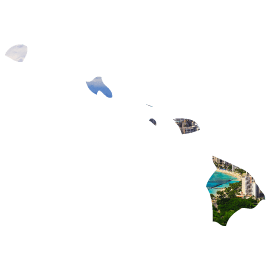Elementary Teacher Preparation in Reading
Instruction : Hawaii
Delivering Well Prepared Teachers Policy
Analysis of Hawaii's policies
Hawaii does not require that teacher preparation programs for elementary teacher candidates address the science of reading. The state has neither coursework requirements nor standards related to this critical area.
Hawaii also does not require teacher candidates to pass an assessment that measures knowledge of scientifically based reading instruction prior to certification or at any point thereafter.
Recommendations for Hawaii
Ensure that teacher preparation programs prepare elementary teacher candidates in the science of reading.
Hawaii should require that teacher preparation programs in the state train candidates in the five instructional components of scientifically based reading instruction: phonemic awareness, phonics, fluency, vocabulary and comprehension.
Require teacher candidates to pass a rigorous assessment in the science of reading instruction.
Hawaii should test knowledge and skills related to the science of reading, and if it is combined with an assessment that also tests general pedagogy or elementary content, it should report a subscore for the science of reading specifically. Elementary teachers who do not possess the minimum knowledge in this area should not be eligible for licensure.
State response to our analysis
Hawaii asserted that its teacher education programs are required to ensure that candidates are prepared in the state's Areas of Special Emphasis, which includes Beginning Reading. Programs must present evidence in their SATE review that their candidates are competent in this area.
Hawaii also contended that its elementary education content test includes concepts regarding the science of reading.
Last word
Select another topic
Delivering Well Prepared Teachers
- Admission into Preparation Programs
- Elementary Teacher Preparation
- Elementary Teacher Preparation in Reading Instruction
- Elementary Teacher Preparation in Mathematics
- Middle School Teacher Preparation
- Secondary Teacher Preparation
- Secondary Teacher Preparation in Science
- Secondary Teacher Preparation in Social Studies
- Special Education Teacher Preparation
- Assessing Professional Knowledge
- Student Teaching
- Teacher Preparation Program Accountability
Expanding the Pool of Teachers
Identifying Effective Teachers
- State Data Systems
- Evaluation of Effectiveness
- Frequency of Evaluations
- Tenure
- Licensure Advancement
- Equitable Distribution

